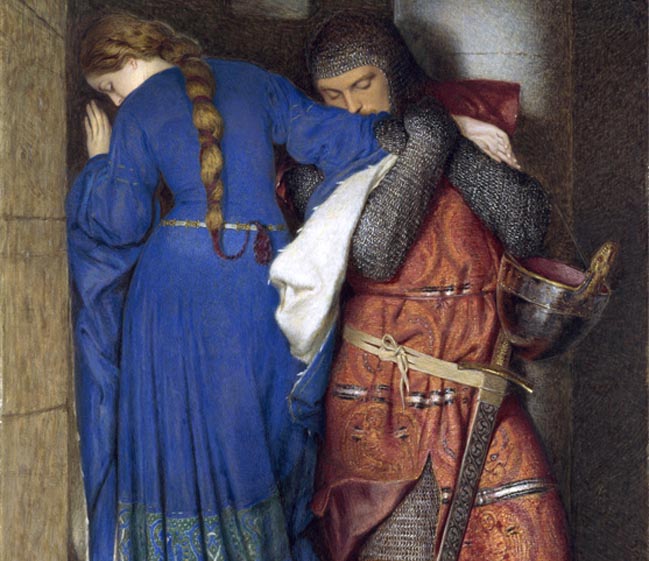Wednesday
Today Julia and I celebrate our 43rd wedding anniversary and, while we plan to spend many more years together, this coming year will be spent apart. I turn to John Donne’s “Valediction: Forbidding Mourning” for how to handle the separation.
Julia will be splitting her time between my mother in Sewanee, Tennessee and my youngest son’s family in northern Georgia. My daughter-in-law Candice has just received a tenure-track film studies position at the University of North Georgia, and my son Toby still has his post-doc at Georgia Tech, so Julia will be helping take care of our three granddaughters—all under four—during midweek. Meanwhile I will be continuing my regular teaching duties at St. Mary’s College of Maryland. We will see each during vacations.
Donne wrote “Valediction: Forbidding Mourning” for his wife Anne in 1611 or 1612 when he was preparing to visit the continent. It begins with Donne telling his wife and himself to separate quietly, the way that truly spiritual persons face death. No “tear-floods” or “sigh tempests” allowed:
As virtuous men pass mildly away,
And whisper to their souls to go,
Whilst some of their sad friends do say
The breath goes now, and some say, No:
So let us melt, and make no noise,
No tear-floods, nor sigh-tempests move;
’Twere profanation of our joys
To tell the laity our love.
The absence of commotion does not mean they are indifferent but just the opposite: their love is so holy that it calls for a new kind of response. We expect, in such situations, to see emotional earthquakes, but their love, like a movement of the spheres, can’t be seen down here on earth, even though such movement is more cataclysmic:
Moving of th’ earth brings harms and fears,
Men reckon what it did, and meant;
But trepidation of the spheres,
Though greater far, is innocent.
In imagining himself and Anne in a transcendent relationship, Donne plays with an idea that he elaborates upon in “The Canonization,” where he imagines the two of them being canonized and people making pilgrimages to visit their ashes. (“all shall approve/Us canonized for Love”).Their love, he asserts in “Valediction,” doesn’t require physical presence:
Dull sublunary lovers’ love
(Whose soul is sense) cannot admit
Absence, because it doth remove
Those things which elemented it.
But we by a love so much refined,
That our selves know not what it is,
Inter-assured of the mind,
Care less, eyes, lips, and hands to miss.
At this point, Donne provides two metaphors to capture the connection between Anne and himself. The first is gold thread that has been beaten into such airy thinness that the eye can’t see it:
Our two souls therefore, which are one,
Though I must go, endure not yet
A breach, but an expansion,
Like gold to airy thinness beat.
Although e-mail and Skype are even more airy than beaten gold, they just don’t have the same metaphorical resonance.
The other metaphor involves a compass such as is used to circumscribe a circle. Even though one leg stays at home while the other wanders far away, the two remain in sympathetic connection, with the one revolving in place while the other moves through the world. When the wandering leg begins heading home, the other leg hearkens and becomes alert:
If they be two, they are two so
As stiff twin compasses are two;
Thy soul, the fixed foot, makes no show
To move, but doth, if the other do.
And though it in the center sit,
Yet when the other far doth roam,
It leans and hearkens after it,
And grows erect, as that comes home.
Such wilt thou be to me, who must,
Like th’ other foot, obliquely run;
Thy firmness makes my circle just,
And makes me end where I begun.
Julia, you are my center. However long we are separated, you will always be my beginning point and my end point.


